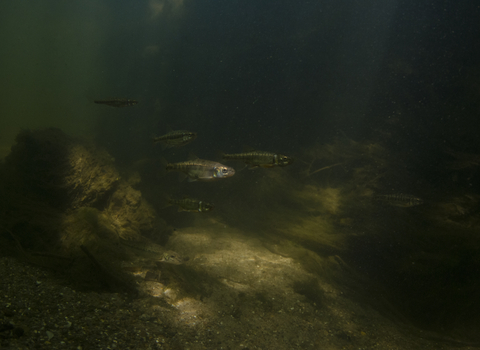
Minnow ©Jack Perks
Minnow
A common and diminutive fish, the minnow can be found in freshwater streams, rivers and lakes across the country. Look out for the dark stripe along its flank and the red bellies of the males.
Scientific name
Phoxinus phoxinusWhen to see
January to DecemberSpecies information
Category
Statistics
Length: 4-10cmWeight: 8-16g
Average Lifespan: 2-5 years
Common.
